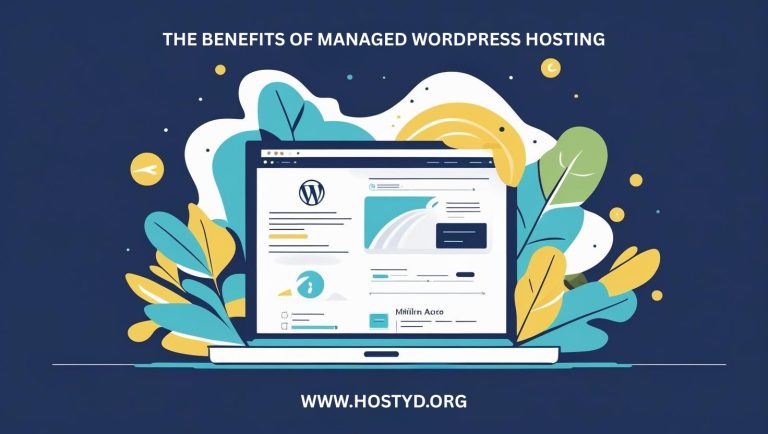The Benefits of Managed WordPress Hosting

About half of the web uses WordPress. This makes many site owners wonder: should I choose DIY shared hosting or managed WordPress hosting?
Managed hosting is the wiser choice most of the time, where time, security, and speed are great concerns to you.
Did you realize that approximately 43 percent of websites are operating on WordPress today? This scale explains why there are special, managed solutions for optimizing each layer of a WordPress site.
What does managed WordPress hosting involve? Who is the beneficiary?
Managed WordPress hosting leaves the complexity of servers behind you. A managed provider will create a space designed just for WordPress. This is better than a generic host that uses the same setup for all sites. It has automatic updates, server caching, built-in CDN support, hardened security, daily backups, and WordPress-trained support teams.
Who should consider it? Website owners who expect steady traffic, run e-commerce or membership sites, or want reliable performance and service.
Are you tired of trying to find out which plug-in is causing problems? Do you wonder why it takes longer to load? Or why do you have to restore it at 11:00 pm? Managed hosting can solve these issues.
Top Benefits Explained
Here are the benefits of managed WordPress hosting.
1. Speedy Page Loading and Performance
An optimized platform improves the server stack and object caching. It also enhances edge caching. This helps lower Time to First Byte (TTFB) and speeds up page compression.
The speed of the pages translates to reduced bouncing and increased conversions. Optimized hosting minimizes that threat and contributes to SEO through the enhancement of Core Web Vitals.
2. Greater out-of-the-box Security
Proactive security is provided by managed hosts: web application firewalls (WAF), malware scanning, DDoS, and patch management. They also control user access to servers and isolate accounts to minimize cross-site risk.
3. One-Click Restores and Automation on the Backups
Human error happens. Managed hosts provide scheduled and reliable backups. This makes restoring easy, so a bad update won’t become a nightmare. This mental calmness plays a critical role in stores and businesses where lost time equals lost income.
Last time you tested a restore is not older than one year ago? In case you are not able to answer fast, managed hosting bridges that gap.
4. Expert WordPress Support
Managed provider support teams know a lot about WordPress. They understand its internals, themes, hooks, and databases. They also know how WordPress interacts with web pages and common plugins. This includes both built-in and third-party plugins.
Such experience will save time on troubleshooting and will eliminate new issues. You have a WordPress expert who can help you with fixes and optimization. This is better than searching for a specific error log. Would you not better use that time in bettering content or products?
5. Scalability and Reliability
The team designs Managed WordPress plans to scale. When traffic is high, like during product launches or viral posts, the system can automatically handle the demand. Most providers use cloud instances in data centers around the world. They also combine CDNs to keep the site responsive at all times.
Do you have a strategy in place in case of a sudden increase in traffic? Managed hosting does make such a plan a reality.
How Managed Hosting Supports E-E-A-T of your Website?
E-E-A-T (Experience, Expert, Authoritative, Trustworthy) is now the focus of content assessment by Google. A fast, reliable, and well-maintained site shows trust. It improves user experience and shows that content creators are professionals.
Hostyd.org offers hosting options. These options help prove authorship, provide clear contact information, and ensure secure HTTPS connections. All of these measures improve E-E-A-T. Do you have your pages configured in such a way that they put your credibility on both the user and search engine sides?
Useful Tips on How to Select a Managed Provider
- Check the stack: Look for providers with current infrastructure like NGINX, PHP-FPM, Litespeed, or custom stacks. They should also have a CDN and edge caching.
- Support quality: It is best to give priority to hosts who have WordPress-trained 24/7 support and have documented SLAs.
- Security requirements: Inquire about WAF, DDoS protection, malware scanning, and compliance certifications (e.g., SOC 2).
- Backup policy: Make sure to verify the backup frequency, retention time, and one-click restore facilities.
- Scalability: Check the traffic bursting capacity and autoscaling capability of the host.
- Migration assistance: Managed host is giving you low-friction migration assistance so you don’t get stuck on your way.
Wrap-Up
Managed WordPress hosting does not replace a good content strategy or on-site SEO. However, it removes much of the technical stress that does not help growth. Managed hosts take away the worry of site performance, upkeep, and professional help. This lets creators focus on what matters: posting valuable content and building relationships.
Would not any site owner desire to do so?


